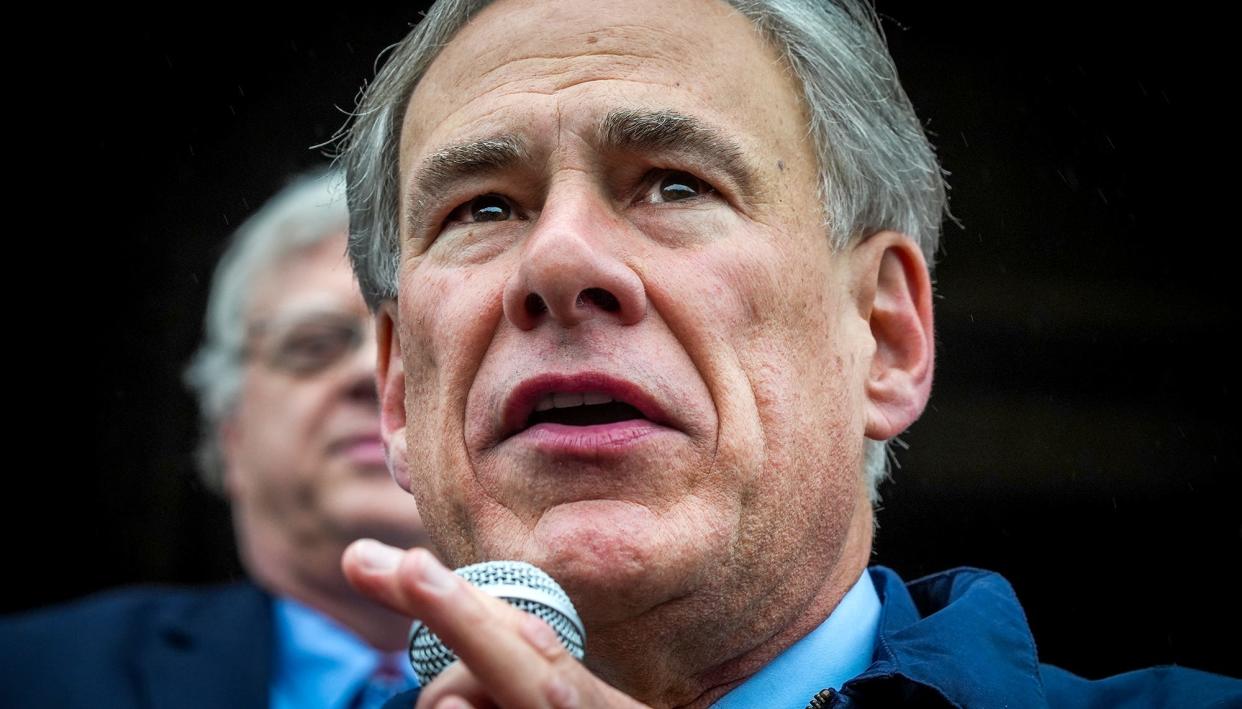Greg Abbott clears path for 'school choice' after helping pro-voucher candidates

Gov. Greg Abbott's infusion of $6 million to support state House candidates who would back a controversial "school choice" program — a signature legislative priority the governor championed but failed to get passed last year — seems to have paid off after eight GOP primary challengers either ousted an anti-voucher incumbent or pulled them into a May runoff election.
In four races in which the incumbent decided against seeking reelection, two Abbott-supported candidates won and two others are heading to runoffs, according to the complete but unofficial election results.
The primary outcomes are setting the battleground for an expected energetic legislative fight in 2025 over whether lawmakers will approve a school choice program, also known as vouchers or education savings accounts, which use public money to pay for private schooling, and could augment Abbott's influence over the House.
After spending much of 2023 touring Texas to advocate for school choice, Abbott suffered multiple embarrassing setbacks when a coalition of Democrats and rural Republicans in the House blocked such proposals from advancing in the lower chamber. Abbott then vowed to take the fight to the ballot box and prop up candidates who would help him get his legislative priority passed through the finish line.
The issue last year was highly charged for both supporters, who say a school choice program would help expand students’ opportunities, and opponents, who worried such proposal would bleed resources from public schools.
Good news for Abbott
Abbott spent $6 million in the month leading up to the primary election to bolster candidates who support a school choice program, according to campaign finance results.
More: Gov. Greg Abbott spends $6 million on Texas House candidates who back 'school choice'
Abbott called the primary results a step closer to getting school choice in Texas.
“Republican primary voters have once again sent an unmistakable message that parents deserve the freedom to choose the best education pathway for their child,” Abbott said in a Tuesday night statement.
It was a good night for Abbott, said Mark P. Jones, a Rice University political science professor.
"His credibility and power have been bolstered and from a policy perspective," Jones said. "He's cleared the path for school choice in 2025."
During a strenuous 2023 legislative year, a coalition of House Democrats and 21 Republicans voted to strip a school voucher proposal from an omnibus education bill, effectively killing the proposal at the time.
Abbott vowed to go to battle against the 16 of those 21 Republicans who sought reelection.
Abbott’s credibility was undermined at that time, so he needed to follow through on the threats against GOP House members, Jones said.
"Abbott put his money where his mouth was," Jones said.
The money, the results
After Abbott in December received a $6 million donation from Jeffrey Yass, a Pennsylvania billionaire and leading advocate for school choice issues, the governor spent that money in the month leading up to the primaries to support pro-school choice candidates.
In three of the four races Abbott spent most heavily on, his preferred candidates succeeded either with an outright win or by taking the incumbent to a runoff.
Janis Holt won a decisive victory over Rep. Ernest Bailes, R-Shepherd. Holt won 53.2% of the 28,222 votes cast, compared with Bailes’ 38.8%, according to complete but unofficial results. Abbott spent more than $671,000 supporting Holt’s campaign in the past month, campaign finance records show.
Rep. Steve Allison, R-San Antonio, lost by a similar margin to Marc LaHood, who received more than $672,400 from Abbott in the past month. LaHood won 53.5% of the 22,062 votes cast compared with Allison’s 39.4%, according to complete but unofficial results.
Abbott’s spending and time on these races was unique, said Scott Jensen, senior adviser for American Federation for Children, a national pro-school choice organization.
"I have never seen a governor invest more time, money or political capital in trying to advance school choice than Greg Abbott did," Jensen said.
The elections could set up the Legislature to pass a strong school choice package in 2025, he said. The Texas Senate has historically been supportive of school choice, but such proposals have died in the House.
School choice opponents, however, are still waiting to see what comes from the May 28 runoffs and November general elections, said Clay Robison, spokesperson for the Texas State Teachers Association. However, it’s clear the margin of opposition to vouchers will be narrower, he said.
“There will be a lot of pressure on these anti-voucher opponents in the House,” Robison said. “That will also be complicated by the fact that school districts need money.”
Last year, Abbott linked passing school choice with approval for any new substantial funding for public schools. Both failed.
The power
Tuesday's results put Abbott in a stronger position of power over the House, but a lot will depend on the outcomes of the runoffs, especially the race for House Speaker Dade Phelan, R-Beaumont, Jones said.
Phelan was pulled into a GOP primary runoff against David Covey, who was endorsed by former President Donald Trump. If Phelan wins the District 21 runoff in May, he'd still have to win a vote in the Texas House to be reappointed as speaker.
More: Texas House Speaker Dade Phelan heads to runoff against Trump-backed GOP primary opponent
The outcome could ultimately determine how much influence Abbott, who has butted heads with Phelan over the school voucher issue, has over the House, Jones said.
"Will the Texas House continue to provide a break on the more conservative Senate and governor?" he asked as Texans remain in a wait-and-see period.
Early voting for the primary runoffs begins May 20. Election day is May 28.
This article originally appeared on Austin American-Statesman: Texas primary: Greg Abbott's 'school choice' priority gains steam
Solve the daily Crossword

